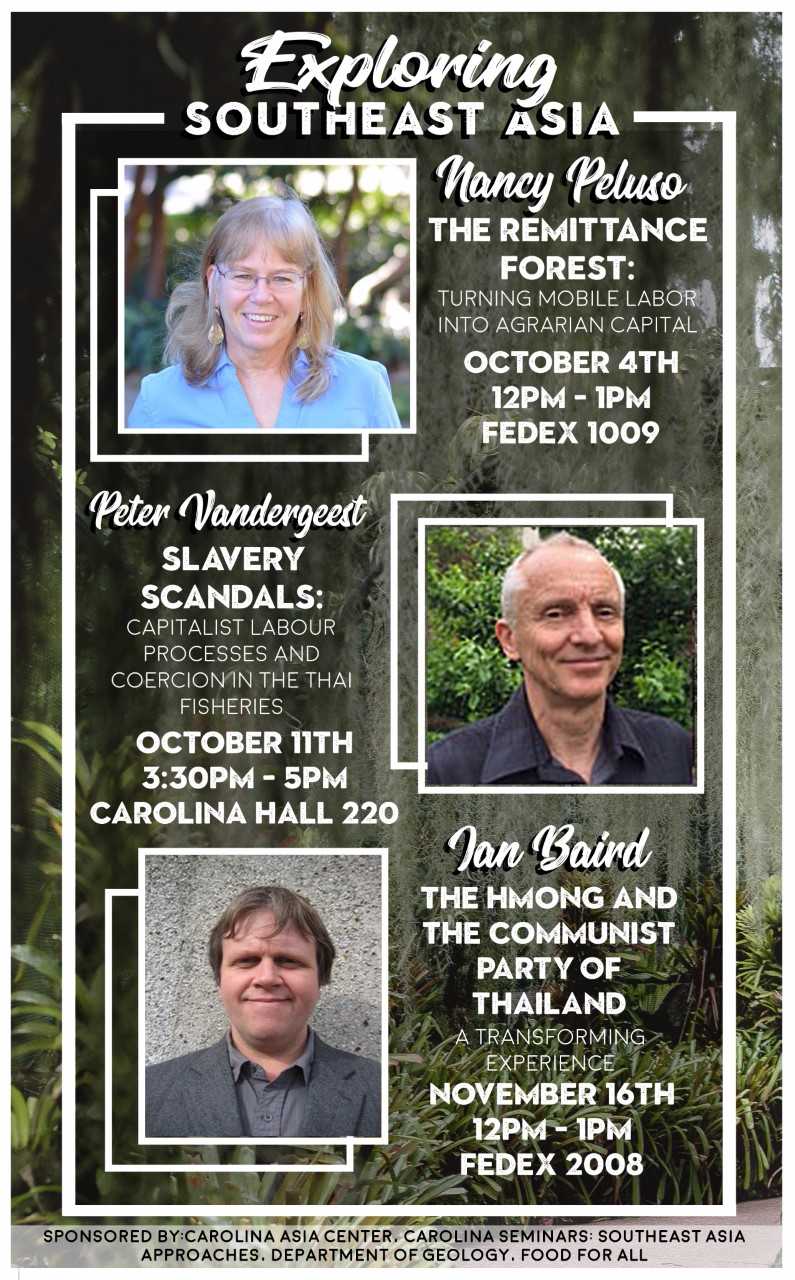
- This event has passed.
Nancy Peluso: “The Remittance Forest : Turning Mobile Labor into Agrarian Capital”
October 4, 2017 @ 12:00 pm - 1:00 pm

How does labor migration affect Southeast Asian forests? Political forests and agroforests in Indonesia have been declining rapidly as millions of hectares are given over to industrial plantations and mines, aggravating rural labor surpluses and increasing rates of domestic and transnational migration. In the mountains of Java, where such plantations and political forests date back to government land grabs in the nineteenth century, forests are being reconstituted and reconfigured by unexpected constituents: the daughters and wives of contracted forest workers and other forest villagers. Working as transnational domestic laborers in Hong Kong and other prosperous Asian cities, many invest their accumulated wages in rural resources, remaking forest lands to suit new investments. This talk will examine some of the dynamics set in motion by remittances as these new forest politics are playing out in a montane forest in East Java, Indonesia. The question posed initially turns on its head the usual perspectives on forest transitions and agrarian change, demanding greater scholarly attention to the specific ways that mobilities affect both the material and symbolic constructions of place—in this case, the political forests of Indonesia.
**NOTE: the Geography department will also be holding a workshop with Dr. Peluso on Thursday, Oct. 5th in the morning. Final details on time and topic will follow soon.
Sponsored by: Carolina Asia Center, Carolina Seminars: Southeast Asian Approaches, the Department of Geography’s Political Ecology Series
Related Events
The Carolina Asia Center supports diverse Asia-related events. However, CAC co-sponsorship of any talk, seminar, documentary screening, film screening, performance or celebration does not constitute endorsement of or agreement with the views presented therein. As an academic institution, we value diverse perspectives that promote dialogue and understanding.
Comments are closed.

